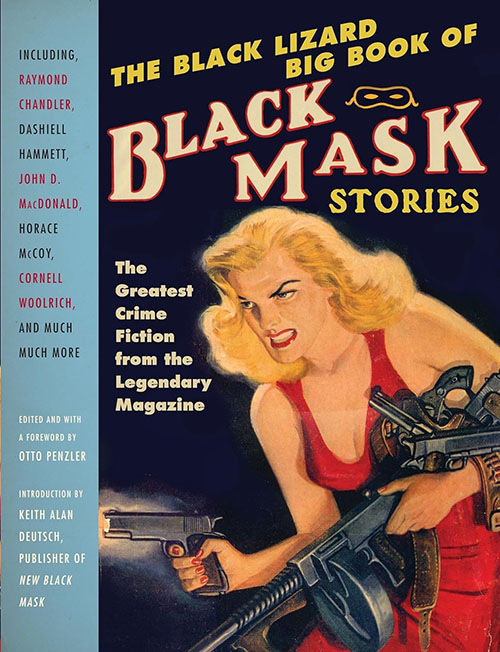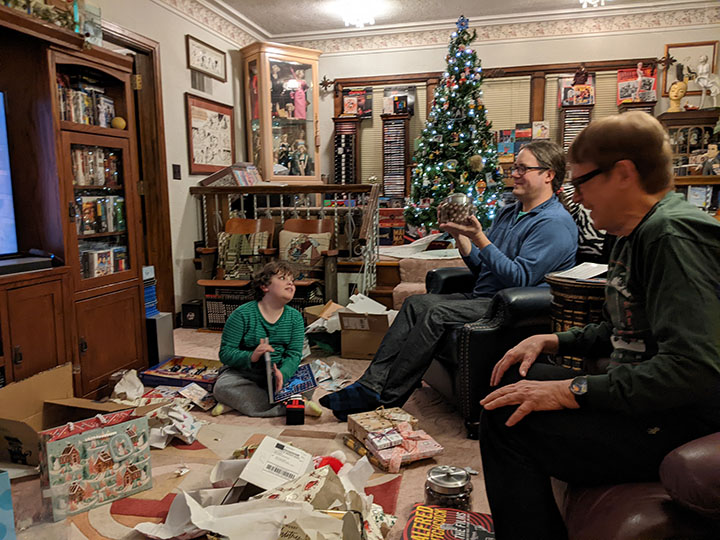Despite the title this week, I am not suggesting we all go down to the local pub and discuss Dashiell Hammett’s The Maltese Falcon.
No.
It is the publication date of my sequel to The Maltese Falcon that we are celebrating on January 6, 2026 (not the sixth anniversary of the Insurrection at the Capitol, either).
The celebration actually began last week, when I announced a book giveaway for copies of the hardcover Hard Case Crime first edition of Return of the Maltese Falcon. I offered 20 copies but expanded that to 25 from my personal stash. All 25 copies were gone on the first day. My thanks to all of you who entered and won, and especially to those I had to turn away.

Tomorrow as I write this (and today as you read it), you will be able to send a review to Amazon and other of the usual on-line suspects (Amazon doesn’t allow pre-pub reviews). I have been asked what it feels like to have this dream project actually come to fruition, and I have replied thusly: I am waiting to see it displayed among the New Releases at the Davenport, Iowa, Barnes & Noble – then I will believe it. And savor it.
Yes, I have long been dreaming about doing my own Sam Spade novel, and I can pinpoint when that desire began: 1961. I was thirteen, still in junior high, specifically the 8th grade. I saw the movie on TV that same year – I believe I did so on a Sunday morning, having convinced my parents that I was sick and couldn’t go to Sunday school or church.
I’ve done several interviews, including one on YouTube, wondering if the idea of specifically doing a Maltese Falcon sequel was something I’d had in mind from the start. The truth is: no. I just wanted to do a Sam Spade novel. The idea for the sequel was what I came up when I made my pitch to Titan Books in March of 2024. I think the whole pitch was, “I’d like to do a sequel to The Maltese Falcon.”
Doing so was gratifying and enjoyable, but hard. Hammett’s brilliant novel was a contemporary work; mine was a period piece. I had plenty of experience in the latter, having done all those Nathan Heller, Eliot Ness and “disaster series’ novels (like The Titanic Murders). So I was something of an old hand at historical fiction, which this would be in a way.
Hammett’s sly, spare style had to occasionally give way to describing places in a historical context – fortunately I had WPA Guides to both San Francisco and California, Don Herron’s excellent The Dashiell Hammett Tour, and several other reference works to call upon. Internet research also came into play. I think – hope – I hit the right balance.
When I completed the novel – having read it through to my satisfaction, doing any necessary tweaks – I was ready to send it to editor/publisher Charles Ardai at Hard Case Crime (Titan is the parent company) – my wife Barb (a writer herself) took me gently aside.
“You’d better prepare yourself,” she said, “for attacks. Not by everybody, but you will be seen by some as exploiting a classic.”
I’d known that going in, but hearing Barb say it was damn near bone-chilling. And last year, as word about my novel got around, I was in fact attacked several times, before the book had even come out or been read by anybody.
I have run into this before. It’s likely, if you’re reading this, that you are aware of my love for Mickey Spillane as a man and a writer, and that – at his request in his final days – he honored me by asking me to complete various works of his that were to be found in his three home offices. He did not put this in motion for his glory or mine, for that matter; but to generate income for his widow, Jane Spillane.
And yet.
There are hardcore Spillane fans who refuse to read the Spillane/Collins byline books or say disparaging things about them. This despite every one of the 16 novels (14 Mike Hammer) having significant Spillane content. The first ten or so were manuscripts well in progress by him, 100 manuscript pages (and notes about endings in some cases). One reader posted a review of Complex 90 (in which I show Velda and Mike in an overtly sexual relationship), accusing me of doing explicit material in a way that Mickey supposedly never would have.
Apparently that huge Spillane fan had never read either The Erection Set or The Last Cop Out. Hint: The Erection Set has erections in it, and I don’t mean buildings.
A key part of my approach to the Spillane co-bylined novels was to determine when he had written the partial manuscripts (and other material), so I could place the book at hand in the context of where Mickey was as a writer and as a man at that moment.
Much of the Spillane unpubbed material was developed during the (ahem) long wait between Kiss Me, Deadly (1952) and The Deep (a non-Hammer followed a year later by Hammer’s return in The Girl Hunters). But Mickey didn’t stop writing during that period – he published a dozen novellas, usually in the men’s adventure magazine Cavalier – works that are a window into his thinking and his evolving literary style.
Here’s the thing about The Maltese Falcon and public domain: somebody was going to do it. Other things that have gone into the public domain have led to such wondrous creative projects as horror films featuring Popeye the Sailor, Winnie the Pooh and Steamboat Willie. I wanted to make a respectful, serious attempt to do Sam Spade correctly. Faithful to Hammett. Others will no doubt follow me, and some may do a better job of it. But I wanted to be first and do it right.
After all, we can’t be far away from James Patterson bylining a novel in which Sam Spade meets Hercule Poirot and Jane Marple, perhaps among Father Brown’s congregation or maybe in the waiting room of Sherlock Holmes, possibly to solve the murder of C. Auguste Dupin.
Anyway, you can imagine how relieved I’ve been at getting such great reviews from the three major book reviewing services: Publisher’s Weekly (a starred review), Booklist and even Kirkus, who in the past have often indicated that humanity would have been better served if I’d just stayed at sacking groceries (I was goddamn good at that).



The first review not from one of those reviewing services has popped up, and it’s worth sharing with you.
Reviewed by James Reasoner
I’m starting the new year off well with an excellent novel from Max Allan Collins. I’ve been a fan of THE MALTESE FALCON since I read the novel in high school, the first thing by Dashiell Hammett I ever read, I believe. Needless to say, I was hooked. Now the original magazine version of the novel, as serialized in the iconic pulp BLACK MASK, is in public domain, and that’s what Collins has used as the starting point for his new novel RETURN OF THE MALTESE FALCON, which, as he points out, is a continuation rather than a true sequel.

And if, by some chance, you’ve never read Hammett’s novel, stop right now and read it before you read this review, and absolutely don’t tackle Collins’ novel until you’ve read the original, because they’re both, of necessity, full of spoilers. I mean it!
The action starts a week after the end of THE MALTESE FALCON, in December 1928. The dead Miles Archer’s desk has been removed from the office of Spade & Archer, and Effie Perrine, Sam Spade’s secretary, has put up a Christmas tree in its place. (Does that make this a Christmas novel? It sure does!)
A potential client pays a visit to Spade’s office. She’s Rhea Gutman, Casper Gutman’s daughter, and she wants to hire Spade to find the real Falcon. The one in Hammett’s novel was a fake, remember? Rhea is the first of four clients who give Spade a retainer to find the dingus. The others are Chicago gambler Dixie Monahan, Corrine Wonderly, the younger sister of femme fatale Brigid O’Shaughnessy, and Steward Blackwood, an official from the British Museum who claims that institution is the true owner of the Falcon.
Spade plays all these characters against each other. He has run-ins with the cops. A dead body turns up. Spade is hit on the head and knocked out, and he’s captured by a gunman who wants to kill him. This is great stuff in the classic hardboiled private eye mode, the kind of thing that Dashiell Hammett invented, along with Carroll John Daly. Stylistically, Collins’ fast-moving, straight-ahead prose isn’t quite as stripped down as Hammett’s, but it’s certainly in the same ballpark.
Being constrained to use only the elements to be found in the original novel’s pulp serialization turns out to be a good thing. Collins is able to bring on-stage characters who were only mentioned before and invent new ones who fit perfectly in that setting. The resolution of the mystery and the way the book wraps everything up are extremely satisfying.
A number of years ago, I read and loved Joe Gores’ prequel novel SPADE & ARCHER. RETURN OF THE MALTESE FALCON is even better. I’m glad Max Allan Collins wrote it, and I’m grateful to Hard Case Crime for publishing it. It’ll be out officially in e-book and hardcover editions tomorrow. For hardboiled fans, I give it my highest recommendation.
This is, obviously, a lovely review. James Reasoner, a top-notch word smith himself, is incorrect about one thing: while I re-read the serialization of The Maltese Falcon (in Otto Penzler’s The Black Lizard Big Book of Black Mask Stories), the basis for my sequel is the published novel (Knopf, 1930). The serialization did not go into the public domain till last year, as its final installment appeared January 1930.
Trust me – I kept an eye on that.
Nonetheless, Mr. Reasoner liking my novel means a lot to me, as he is about as seasoned a pro in the fiction game as anybody I know of.
If you are familiar with the Bogart-starring film adaptation of The Maltese Falcon, a re-reading of that novel before reading the sequel isn’t necessary. A few readers have already told me they plan to re-read the original after they’ve read my sequel. Or that they will view the 1941 film either again or for the first time, in preparation of reading Return of the Maltese Falcon.
That my book will bring some new readers to Hammett’s masterpiece (The Glass Key is next best) is incredibly gratifying.
My pal Robert Meyer Burnett – who so masterfully directed the audio drama True Noir: The Assassination of Anton Cermak, adapted by me from my novel True Detective – is a well-known YouTube pundit (among much else) with two long-running shows on that platform: Robservations and Let’s Get Physical Media.
On the first weekend of January, 2026, I appeared on episodes of both of those shows.
I caution you: these are lengthy episodes. The Robervations is an interview of me by Rob about (largely) Return of the Maltese Falcon). It runs around two hours!
The Let’s Get Physical Media has Rob, co-host Dieter Bastion, and me discussing our top ten favorite physical media releases of the year – it’s well over three hours with many excursions into this and that, including my most recent battle with Rob over Never Say Never Again, the film missing from the Sean Connery “James Bond” 4K set.
The interview:
The Favorite Blu-ray and 4K releases of 2025 from Burnett, Bastion and Collins:
Amazingly, one of the outstanding reviewers of physical media on the Net, That Damn Fool Idealistic Crusader, has done a very smart deep-dive into my novelization of the Dick Tracy movie, and goes into my misadventures writing it.
Even more amazingly, Spencer Draper, The Damn Fool Idealistic Crusader himself, has done the same for my two hard-to-find Tracy novels, Dick Tracy Goes to War and Dick Tracy Meets His Match.
He’s articulate and very, very smart, but again, a warning: these ain’t short shows. The novelization episode is about half an hour, and the Tracy novels episode is about forty minutes.
Damn that Damn Fool Idealistic Crusader! He makes me want to try to get the rights back to reprint the two rare Tracy novels he discusses!
Here’s another one of those articles about movies from comics that aren’t about superheroes.
Let’s make 2026 a much better year than the last.
M.A.C.



